And We're Back.
In which Norm catches up to four recent Blu-ray releases: Criterion's PETITE MAMAN and TARGETS, Arrow's HAND OF DEATH and Film Movement's WARM WATER UNDER A RED BRIDGE. Go on, get cultured.
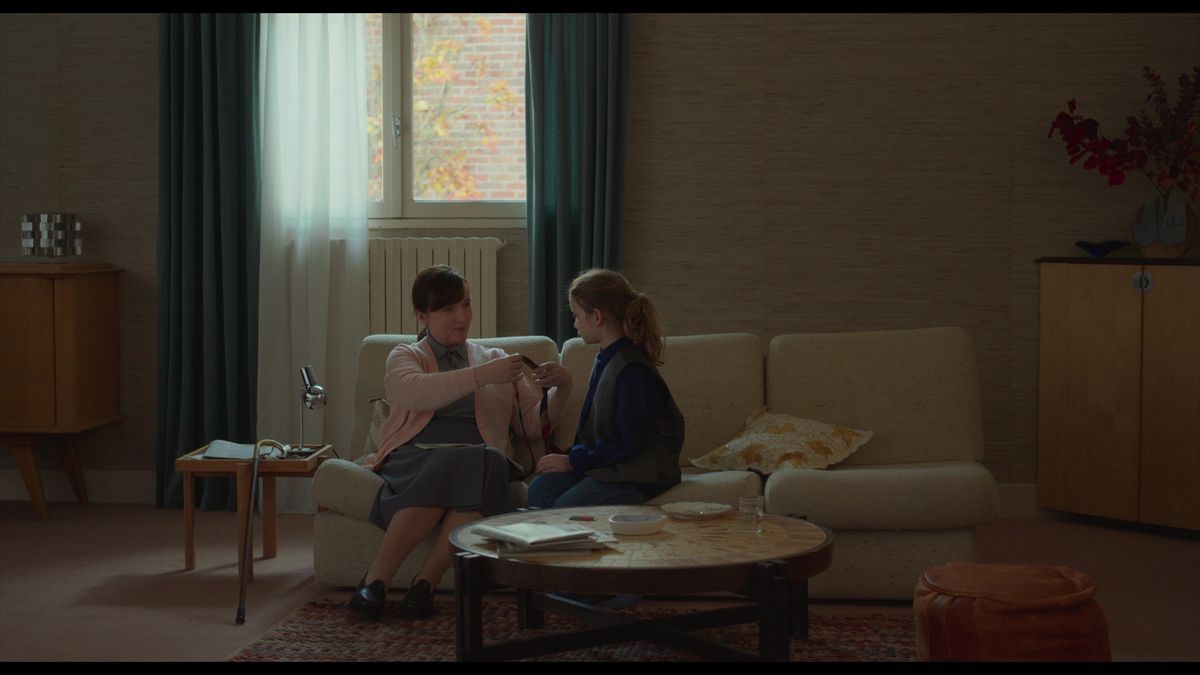
Mostly. More or less. Things are still very much in flux – I guess there’s no good time for aging parents to go to the ER, huh? – but at the moment, everyone’s stable and I’m able to scrape out some time for extracurricular activity. And it’s been an especially lively couple of weeks for classic and important contemporary cinema, as it happens.
The Criterion Collection – which is on a roll this month with 4K editions of Wings of Desire and Thelma & Louise – sent me review copies of Peter Bodganovich’s Targets, which came out last week, and Céline Sciamma’s Petite Maman, which arrived Tuesday. Smaller films, to be sure, but I’m delighted to have them both.
Let’s start with Petite Maman, since this one also counts as a new release; this is the first disc edition of Sciamma’s small, perfect film – and one I’ve been waiting for since I first saw the movie a year and a half ago.
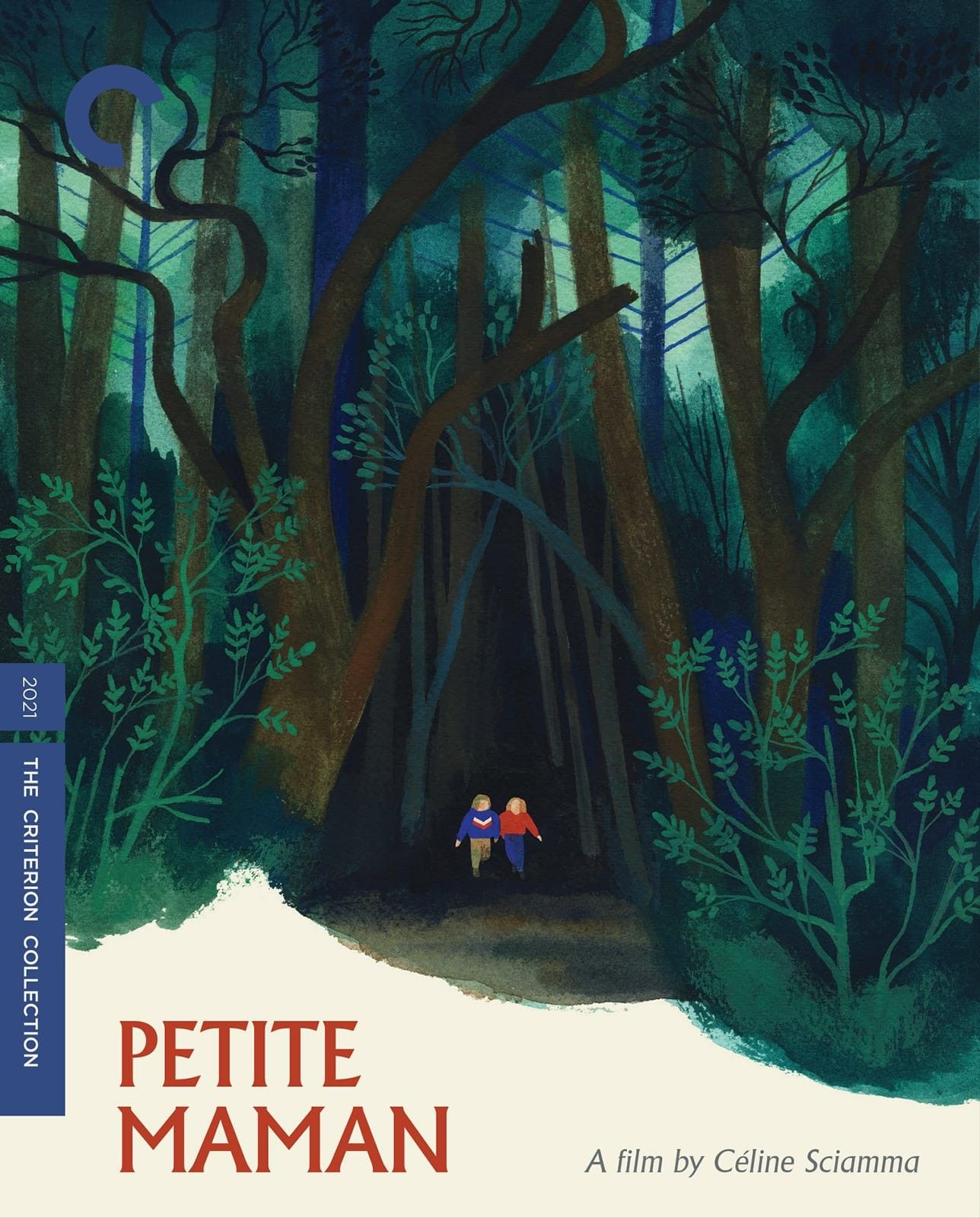
Sciamma’s follow-up to her swooning 2019 epic Portrait of a Lady on Fire is her smallest, quietest film yet; it feels delicate and even fragile, as if you might scare it away if you crinkle a candy wrapper at the wrong moment. Set in and around a little house on the edge of a forest, it sticks close to eight-year-old Nelly (Joséphine Sanz), who has come with her mother (Nina Meurisse) to clean out her grandmother’s possessions after the older woman’s death. Nelly’s mother is a wreck; Nelly doesn’t really understand why, because she’s eight. One afternoon, Nelly wanders into the forest and meets another little girl (Gabrielle Sanz), who looks almost exactly like her. Her name is Marion, which is also the name of Nelly’s mother. It’s not a coincidence.
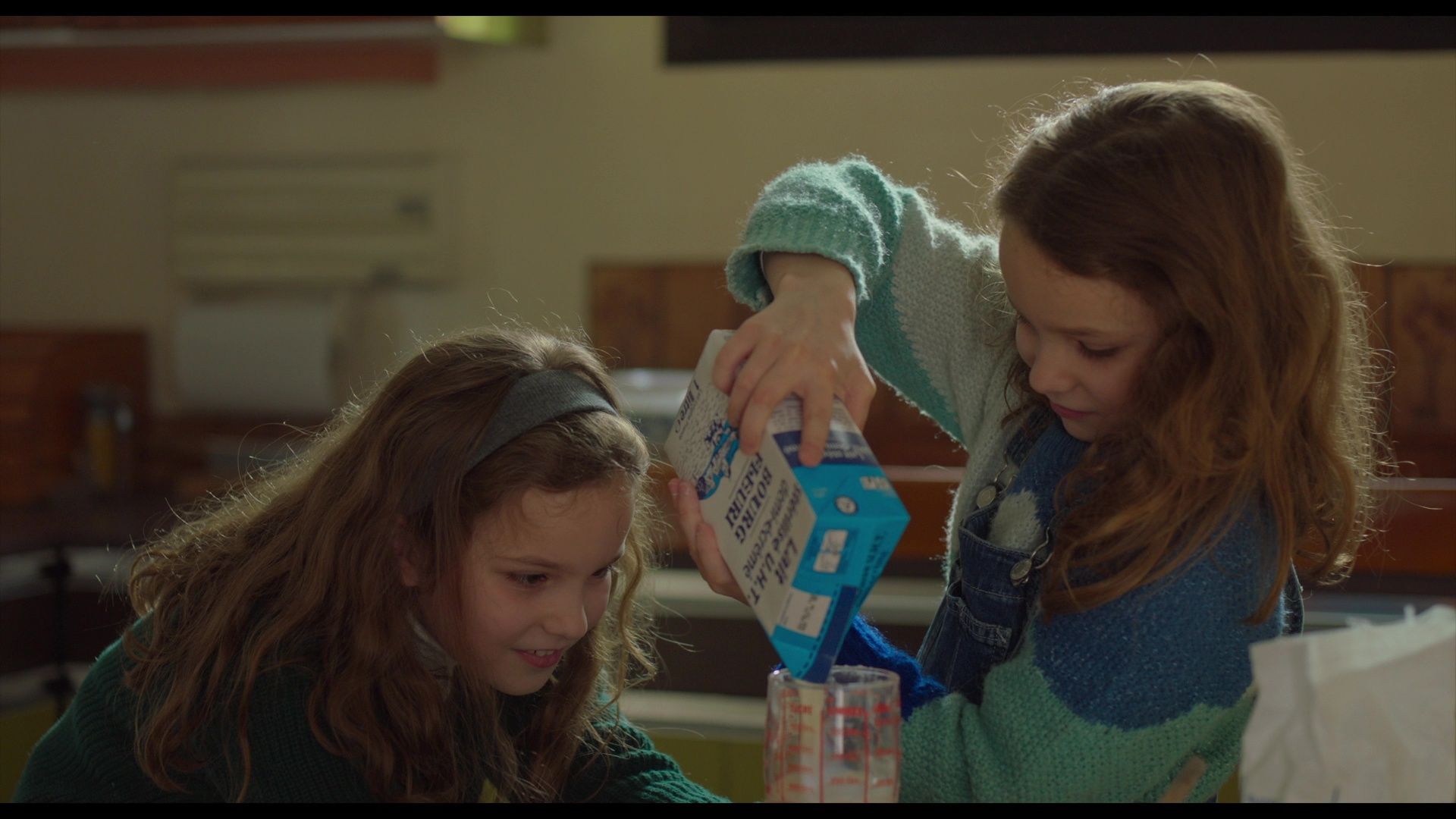
Over the next hour or so, the two girls will hang out, play, talk and do the sort of thing kids do when there are no parents around. If Nelly knows she’s doing a Marty McFly, she doesn’t let on – and it doesn’t really matter, anyway. Sciamma creates a magic-realist bubble around these characters that lets them shrug off anything that isn’t in there with them; when you’re eight, this sort of thing could seem entirely normal. No one said Nelly couldn’t travel back in time if she followed the right path through the woods, so here she is.
Nothing really happens in Petite Maman, in the strictest storytelling terms, and yet you come away from it thinking how much you’ve seen and felt; the film gives us the space to connect to Nelly and Marion, and to see how Marion’s adult life is mapped out in her childhood self, or vice-versa. It’s a beautiful film, and one that grows richer each time you encounter it. It’s a miracle.
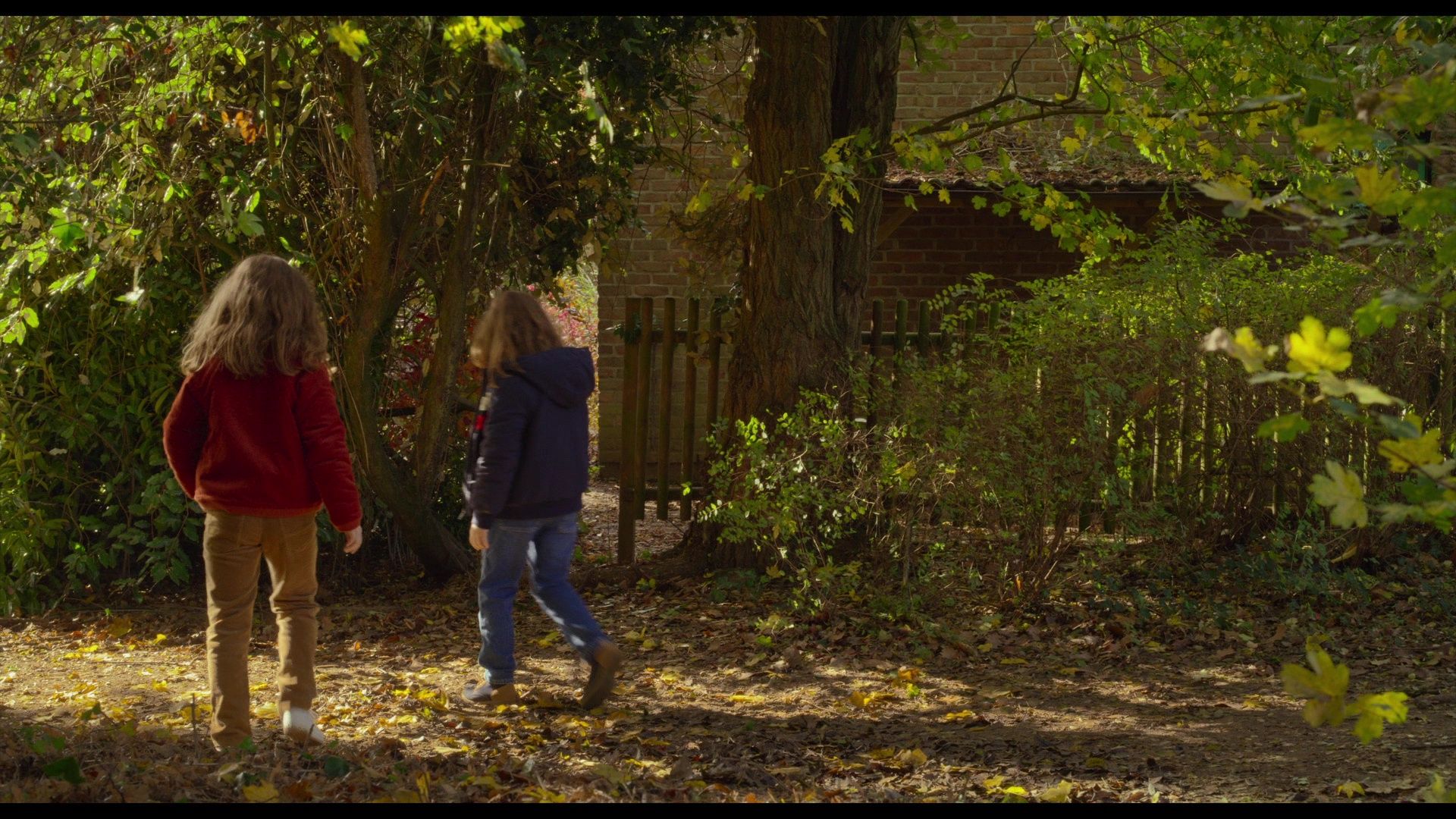
Criterion brings Petite Maman to disc in an appropriately slender edition, with a lovingly rendered presentation of the feature supported by just two supplements: A twenty-minute conversation between Sciamma and fellow filmmaker (and unapologetic fanboy) Joachim Trier, and a whole second feature, Claude Barras’ stop-motion drama My Life As a Zucchini, which Sciamma co-wrote and which, despite its completely different tone and storyline, does feel like a companion piece to Petite Maman in every way that matters.
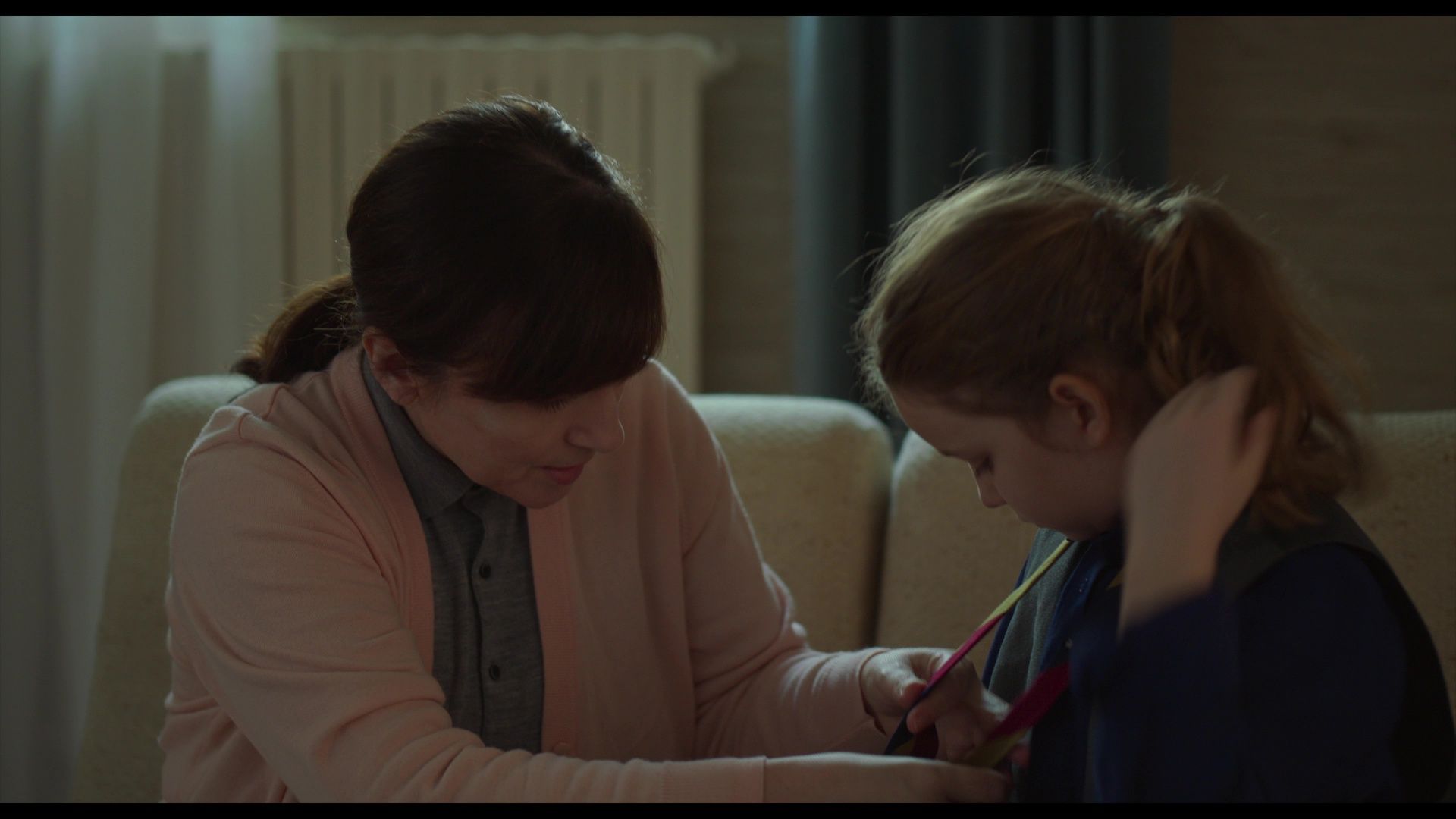
It’s just as caught up in childhood alienation and melancholy – in the loneliness of the kid who’s sharp enough to intuit the adults around them are going through something profound without being old enough to understand why, or what it might be. It’s just that everyone is made of Play-Doh in this one, but let’s be honest: We’ve all been there.
One small complaint: The only version of My Life As a Zucchini provided here is the French-language original, with English subtitles, leaving out the stellar English dub featuring Nick Offerman, Elliot Page and Will Forte. You can find that on Universal’s excellent Blu-ray, though … and there, it comes with chapter stops!
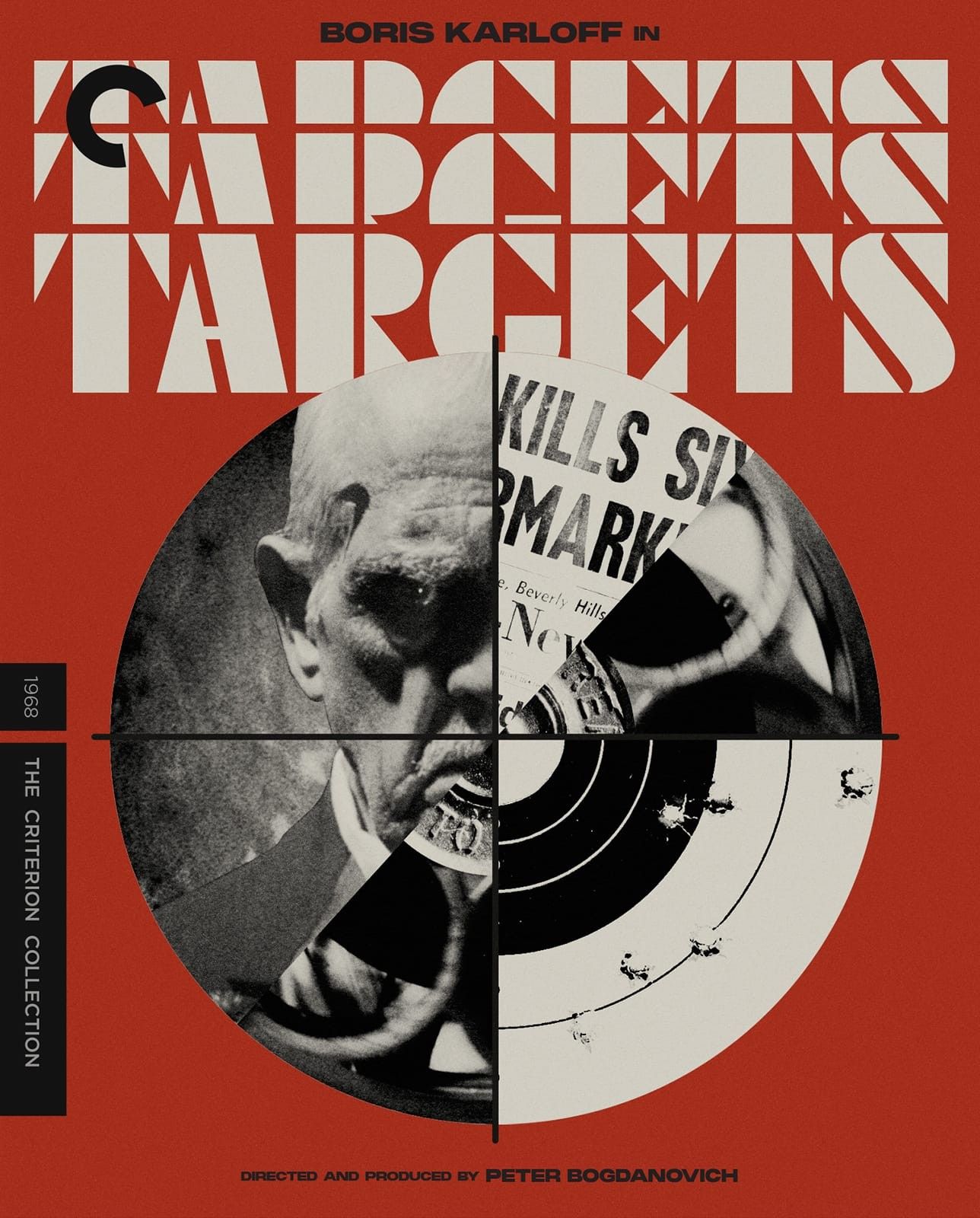
Now, to the classic: Peter Boganovich’s Targets, a straight-from-the-headlines thriller starring Tim O’Kelly as Bobby Thompson, an ordinary red-blooded American male who picks up a rifle and starts shooting people, his spree setting him on a collision course with an aging horror star Byron Orlok, who has a premiere coming up that night at the local drive-in.
Orlok, of course, is played by an actual aging horror star Boris Karloff in what turned out to be one of his final, and finest, performances, and it’s the casting of Karloff as a version of himself that distinguished Targets at the time – with Bogdanovich alongside him as his own meta character, an ambitious young cineaste who’s written a picture for his idol.
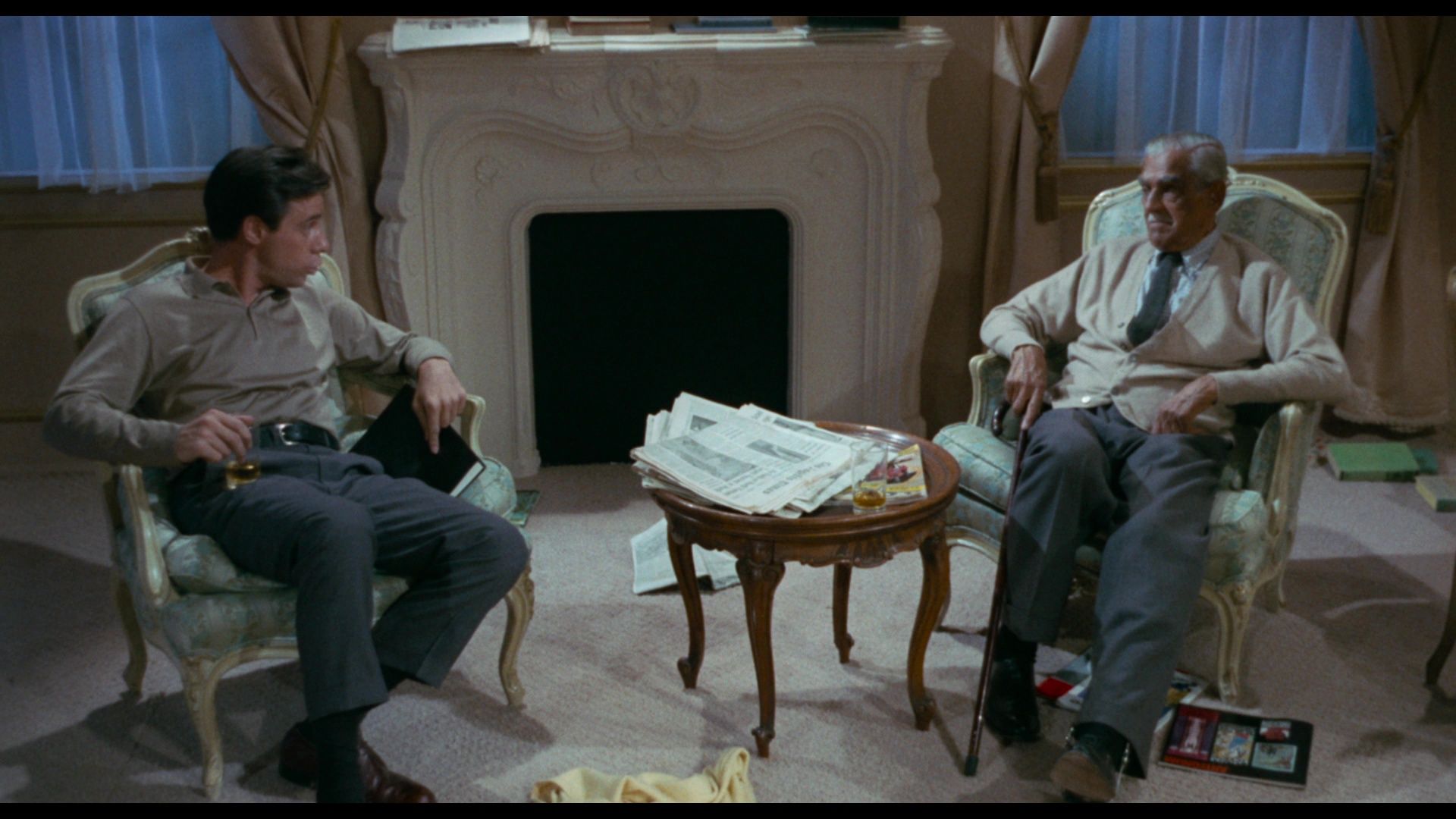
With half a century’s distance, it now plays as a downright eerie exploration of the collision between the stagey chills of a costume creeper and the all too genuine, all too common horror of a mass shooting. Charles Whitman was an inexplicable anomaly when Bogdanovich made this movie; now, well, just open CNN and hit refresh a few times, a mass shooting will happen before you know it. Bogdanovich’s genius is that he frames his movie’s sniper spree as a generational conflict: Karloff’s Orlok is an old, toothless monster, and Bobby Thompson is the new beast coming straight at him. As the saying goes, there can be only one.
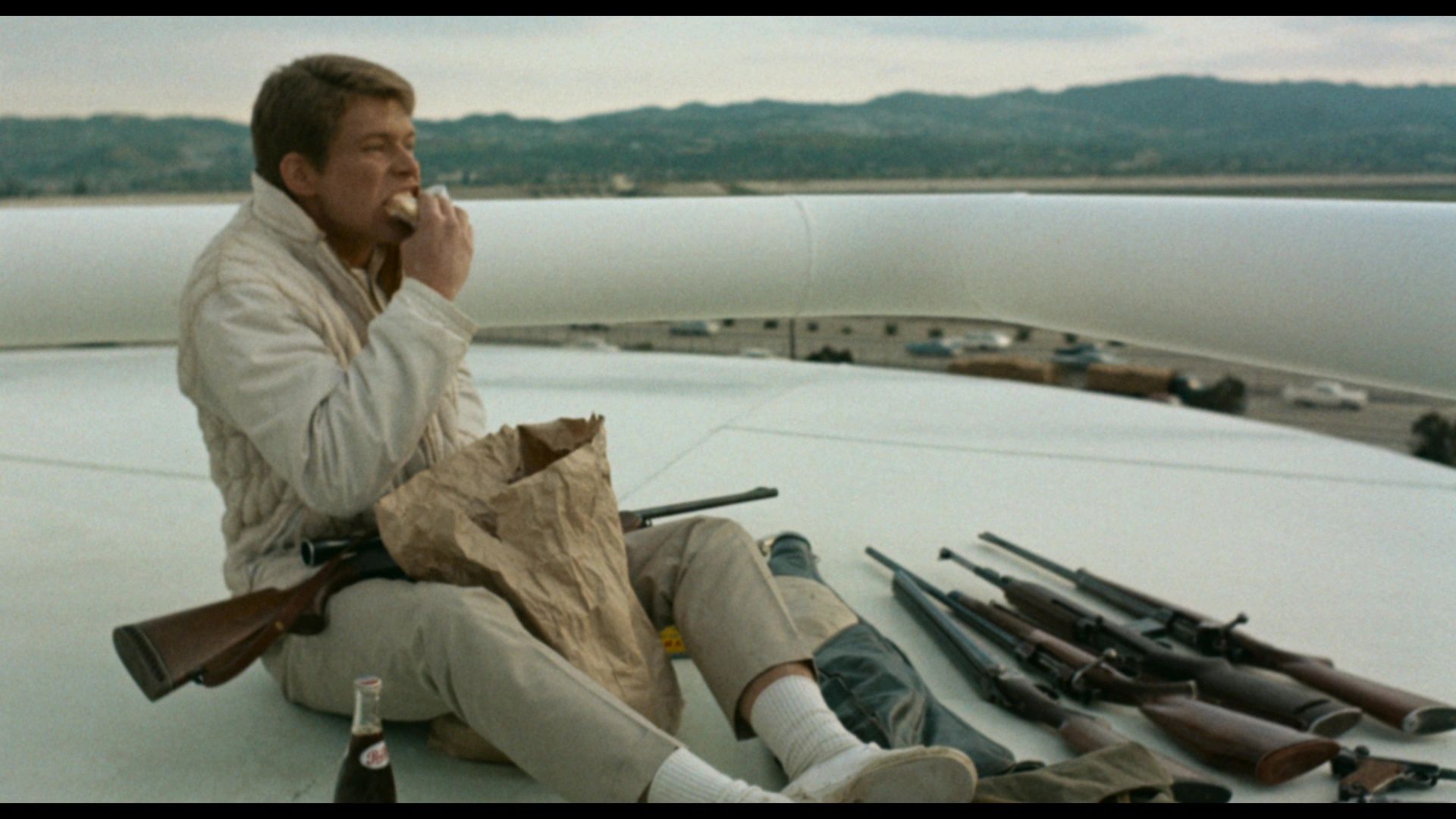
Criterion’s special edition of Targets is, amazingly enough, only the label’s second release of a Bogdanovich film – and the first to get a stand-alone edition, as The Last Picture Show is only available as in their brilliant BBS boxed set. It’s a shame he didn’t live to see the release, though he did supervise the 4K restoration of his debut feature; he would have loved taking a victory lap around what’s left of the home-video press circuit.
The film looks great – better than I thought it could, honestly, given its age and the nature of its production. (Although it was released by Paramount Pictures, Targets was famously produced by Roger Corman as a thank-you for Bodganovich helping him out on The Wild Angels and a Maimie Van Doren picture – meaning that like every other Corman production, it was made for as little as possible.) The original mono audio offers exactly the right soundstage; a surround remix with gunshots cracking in the rear channels would be gauche, somehow. No, this is a movie that ought to be seen with its limitations intact … though I admit I would have loved to see what HDR could do for the shadows pooling underneath the drive-in screen.
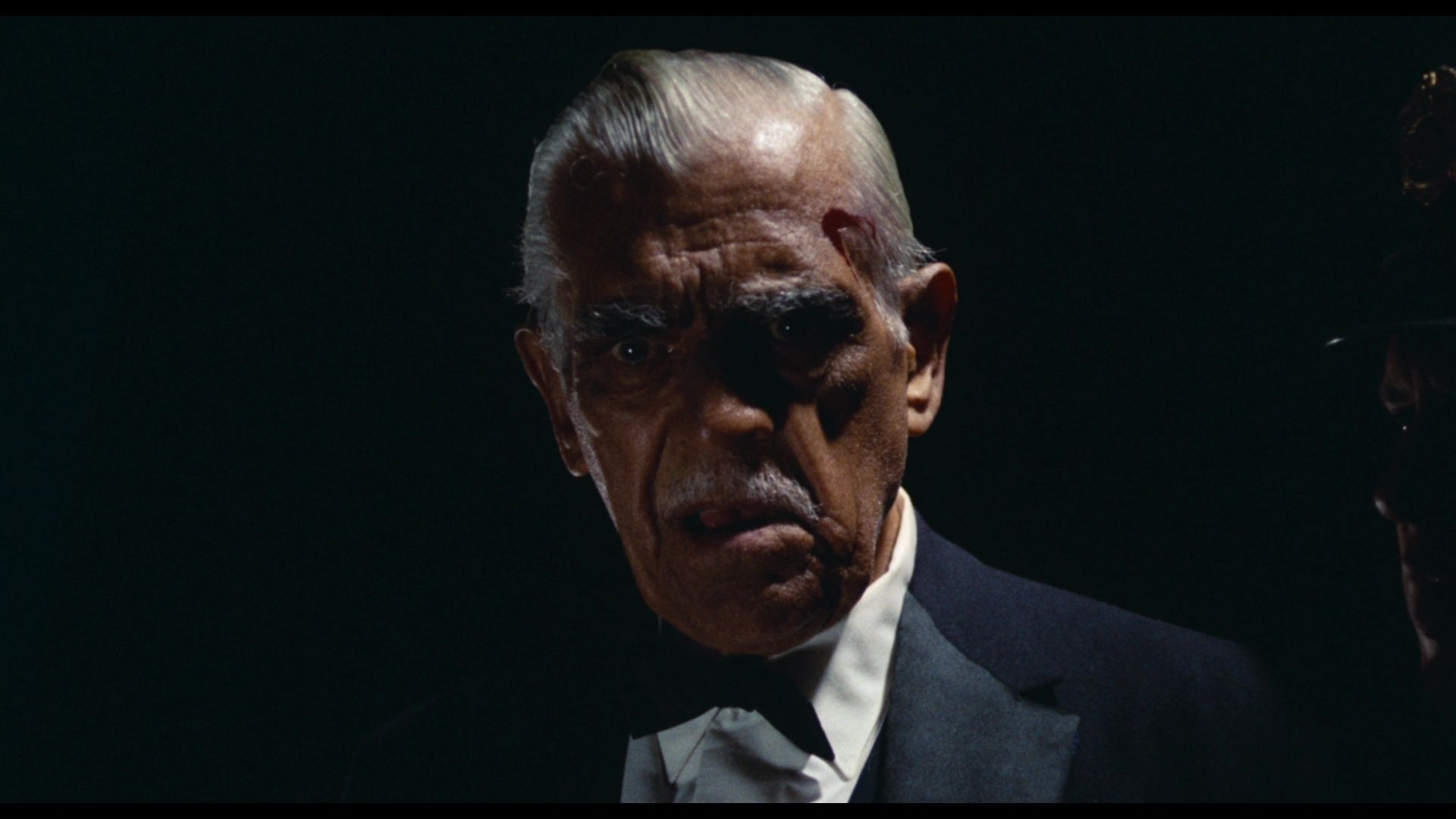
Extras are modest – there’s Bogdanovich’s introduction and audio commentary from the Paramount DVD released twenty years ago, and half an hour of audio from an AFI interview with Bogdanovich’s former partner Polly Platt (who was the film’s costume designer, and shared story credit) recorded in 1983. There’s also a new interview with filmmaker Richard Linklater, who hails from Austin, Texas – the site of Whitman’s 1966 shooting spree. While Linklater is always a welcome presence in any conversation about cinema, I suspect this particular one was originally intended to be between himself and Bogdanovich, and that would have been something.
Finally, there’s the booklet essay “American Sniper”, written by my friend Adam Nayman of Cinema Scope and Reverse Shot and dozens of other places. As it happens, we both turned up online this week as talking heads in the new season of A Year in Film, all four episodes of which are now streaming on Hollywood Suite and available to watch for free right here. Good movie. Good disc. You should pick it up.
A couple of other Blu-ray debuts dropped while I was in the maelstrom, and I don’t want them to slip by unnoticed. First, there’s Arrow’s Hand of Death, a 1976 grindhouse programmer that would ordinarily be just another martial-arts actioner in a boxed set somewhere … if not for the fact that it was written and directed by none other than John Woo, and featured early screen appearances from fellow future legends Jackie Chan and Sammo Hung.
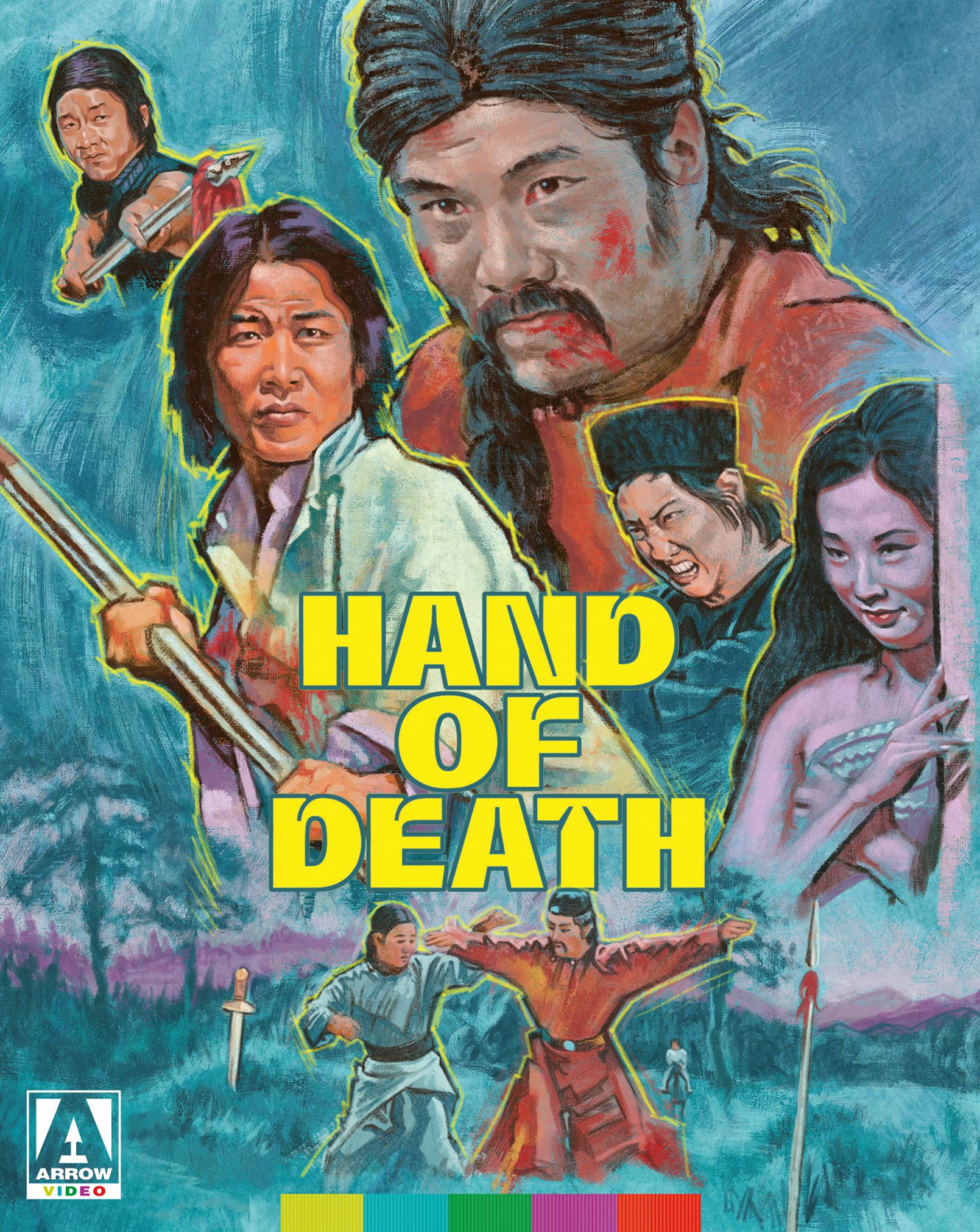
I’ll be honest: Hand of Death is more valuable for the potential it contains rather than anything it actually accomplishes. It’s an undemanding grindhouse programmer: Noble Yun Fei (Tan Tao-Liang, a Hong Kong star who never quite broke out in North America) swears revenge on the villain (James Tien) who turned on his Shaolin comrades, finds a couple of resourceful allies and take on the other guy’s crew, who are led by a sinister Sammo – but as a historical document it’s pretty interesting. You can watch it for hints of the genius to come – Woo’s confidence, Sammo’s prowess, Jackie’s look-at-me energy – without worrying so much that the genius has yet to arrive.
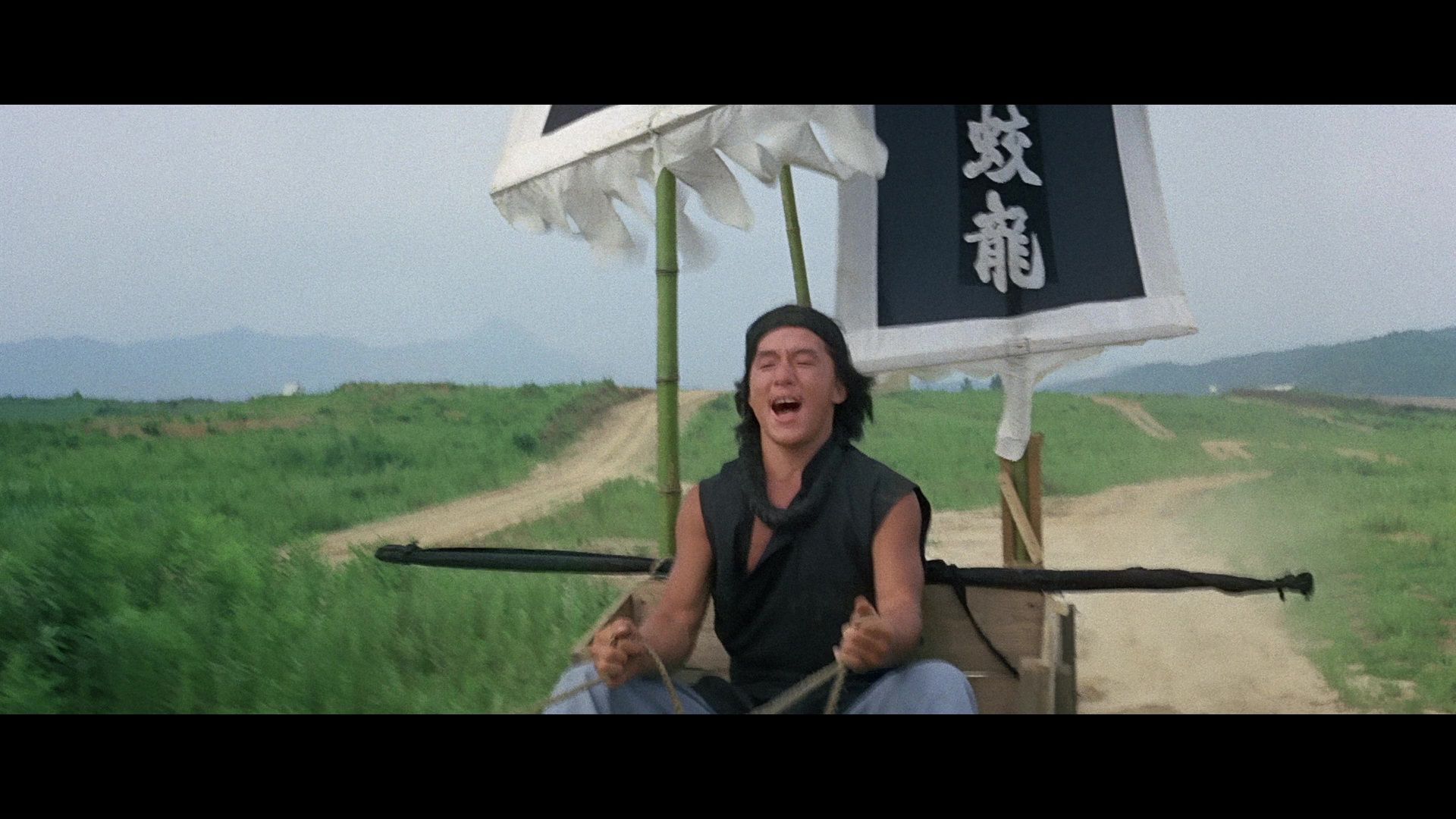
It’s still more fun than sitting through Dead Heat on a Merry Go Round for Harrison Ford’s walk-through as a bellhop, and Arrow has mined the Fortune Star archives for a decent supplemental package. In addition to a new commentary track by Frank Djeng and Michael Worth, we get a half-hour chat with Tan (shot by Worth on what looks an awful lot like VHS-C); a twenty-minute featurette, From Hong Kong to Hollywood with John Woo, recorded in the early 2000s and featuring appearances from Woo’s old pals Chow Yun-Fat and Peter Pau, and a brief catch-up with Sammo Hung where he talks about moving up from stuntman to fight choreographer on this project.
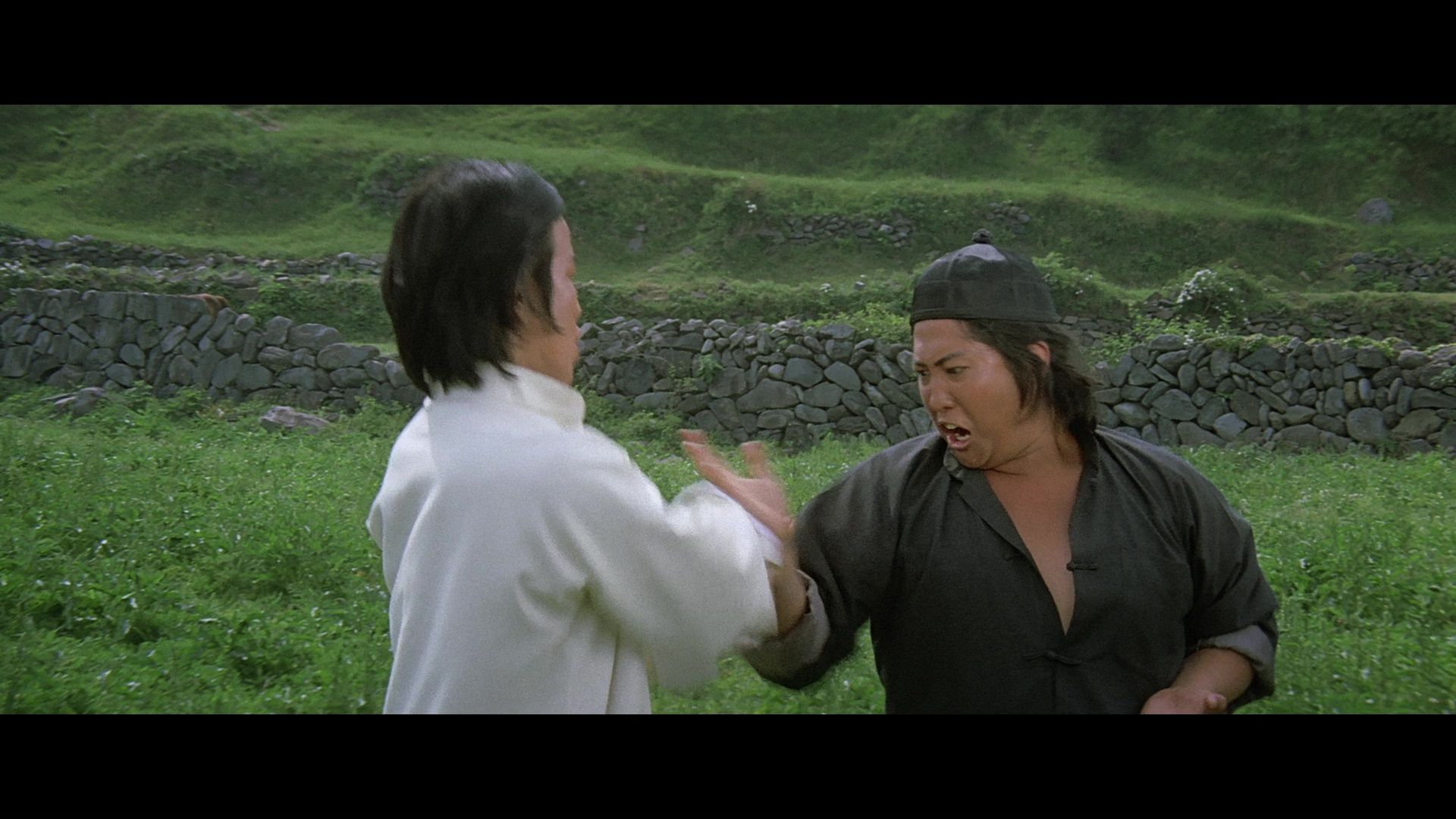
There’s also an alternate credits sequence (from the film’s grindhouse release, when it was titled Countdown to Kung Fu) the domestic and international trailers and a photo archive; it all comes in a nice package with a fold-out poster and a reversible sleeve. I got a check disc.
And finally, there’s the latest restoration from the fine folks at Film Movement: Warm Water Under a Red Bridge, the final feature from iconoclastic Japanese filmmaker Shōhei Imamura, whose provocative career includes the cultural satire of The Pornographers, the blunt-force true-crime thriller Vengeance Is Mine and the shattering drama of Black Rain – the one about Hiroshima, not the one with Michael Douglas. (Tony Scott keeps coming up this month. It’s weird, right?)
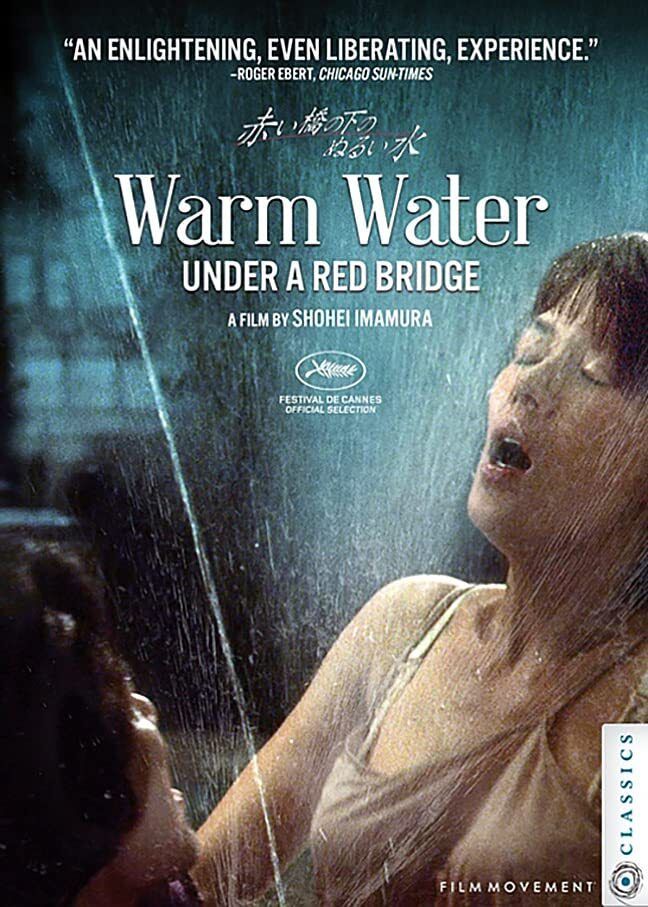
Warm Water is very much an Imamura film, in that it’s specifically, idiosyncratically Japanese but also, um, weird as hell. It’s a romantic comedy about a lost soul, Yosuke – played by Koji Yakusho, just named Best Actor at Cannes a few hours ago for his role in Wim Wenders’ Perfect Days – who travels to a seaside village for an old friend’s funeral and finds a chance for happiness with Saeko (Misa Shimizu), a very nice young woman who has this one weird thing she’s extremely self-conscious about.
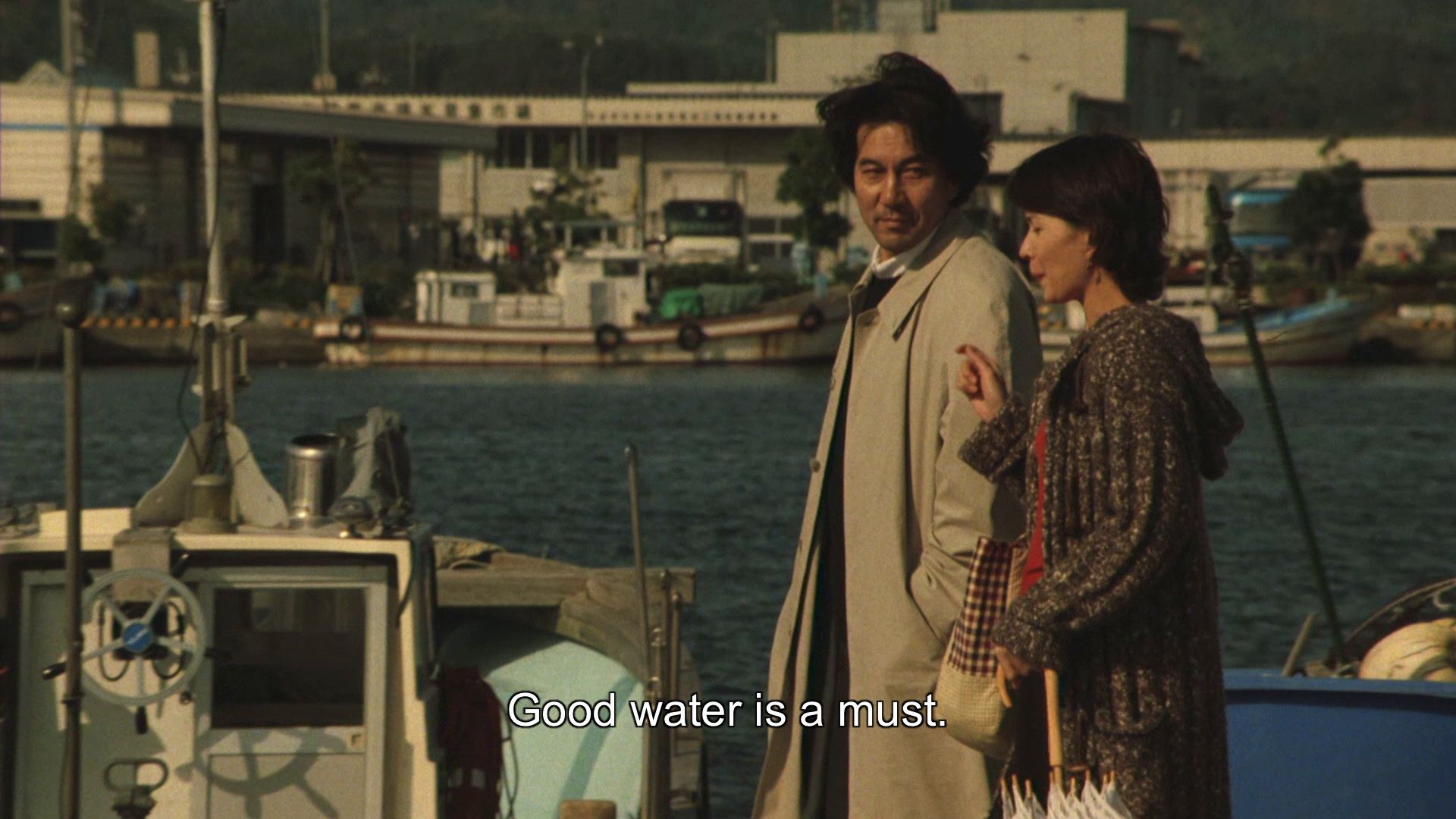
The specifics of of Saeko’s issue are best left undisclosed, the better to let you discover it alongside Yosuke as the movie progresses – but by the same token, the movie’s a couple of decades old and Film Movement put it right there in the jacket art. There’s also Google, of course, but I beg you: If you’re curious, watch the movie. Its secrets are meant to be revealed slowly and with great respect, because Imamura’s whole point is that discovering the layers and mysteries of a new love – and embracing the things that make them who they are – can be as intoxicating as love itself. He’s just turned the mechanics up to 11.
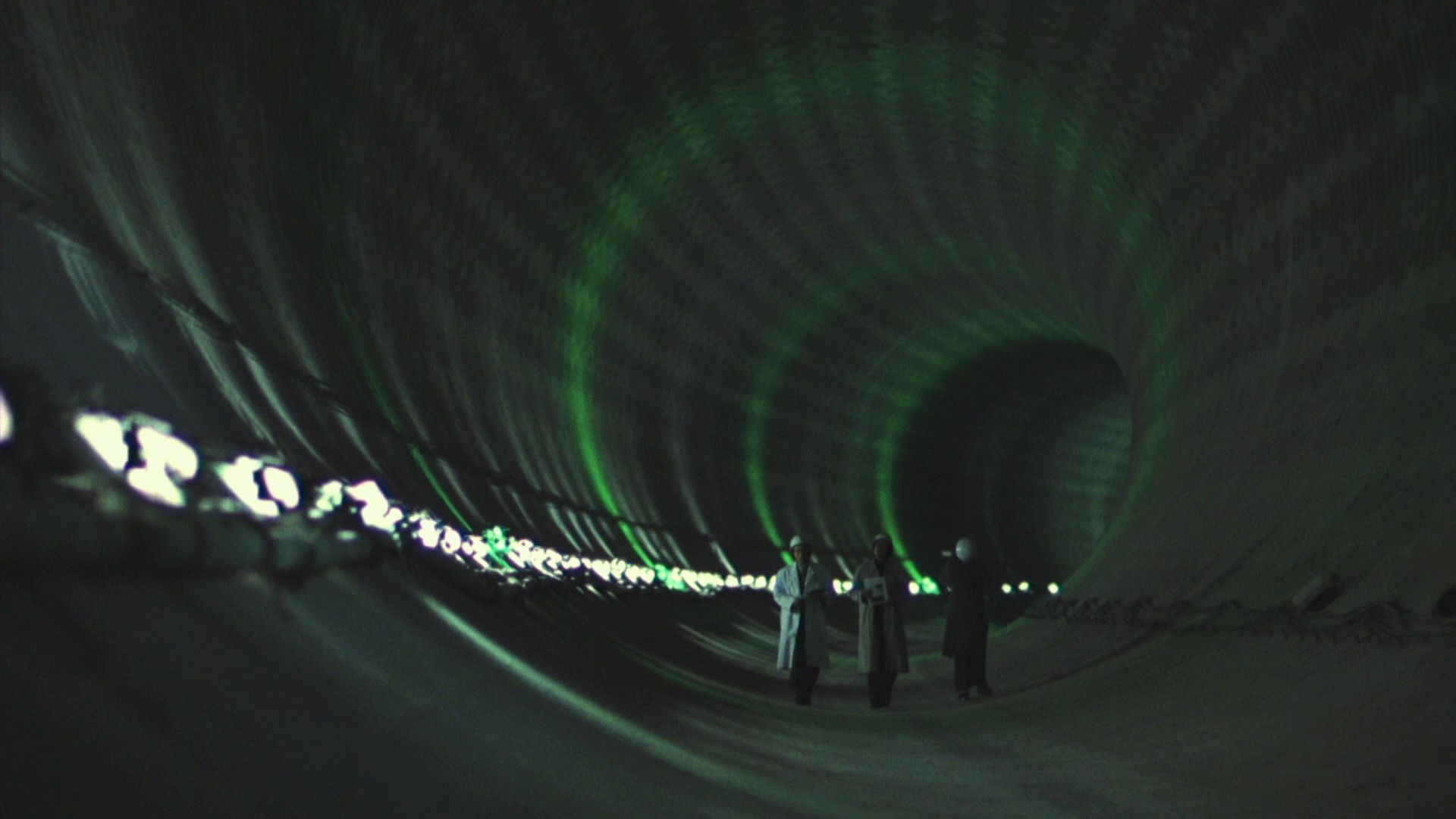
I’ve had a Hong Kong DVD of Warm Water for a while, but the presentation on Film Movement’s Blu-ray is an unquantifiable improvement. The image is clean, if a little on the yellower side than I recall – but it’s just as likely that the color correction on the older DVD wasn’t accurate, given the film’s age. The 2.0 matrixed surround audio is clean without sounding processed, giving the seaside scenes a lovely presence but always letting dialogue come through clearly. The only special feature is a ten-minute video essay by Tom Vick titled Messy and Juicy, but as far as I’m concerned the film itself is the prize. A new Imamura restoration is always cause for celebration. Let’s get to it.
Targets and Petite Maman are now available on Blu-ray in the Criterion Collection. Hand of Death and Warm Water Under a Red Bridge are available on Blu-ray from Arrow Video and Film Movement, respectively.
Coming in Sunday’s paid edition: It’s a new release spotlight as Creed III, Shazam II and Cocaine Bear I all square off on disc. Who would win in a fight? Upgrade that subscription to find out!
